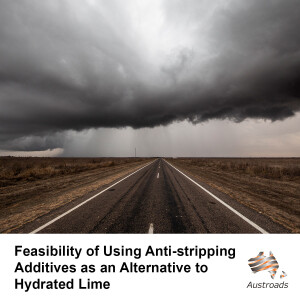Episodes

Thursday Dec 19, 2024
Improving the Sustainability of Sprayed Seals
Thursday Dec 19, 2024
Thursday Dec 19, 2024
Sprayed seals are a widely used, critical component of the road system in Australia and New Zealand, being the predominant type of sealed road surfacing in both countries. Traditional sprayed sealing practice sees a heavy reliance on non-renewable, virgin materials for the two major components, the bituminous binder, which is refined from crude oil, and aggregate, which is extracted from a quarry.
Austroads has recently completed a project to gather knowledge and increase the understandings about sprayed seal technologies and practices that can be used to improve their sustainability in terms of environmental impact. The project report has identified several opportunities that may be pursued to improve the sustainability of sprayed seals.
This webinar discussed the findings of the project and provided an overview of the report, which contains:
- a literature review, conducted to identify and evaluate new and emerging environmentally friendly, sustainable technologies and practices, and innovative materials and methods for sprayed seals
- a description of current sprayed seal materials and practice
- alternative approaches to binders (including additives, emulsions and bio-binders), aggregates and precoating, cutter oils, and construction equipment.
The session also focused on the lifespans of sprayed seals, impacts of climate change and an environmental life cycle analysis to review the impact of different sealing approaches. The webinar was presented by Steve Patrick and Robert Busuttil. There were question and answer opportunities during the session.


No comments yet. Be the first to say something!